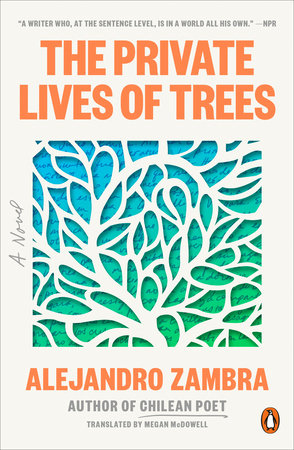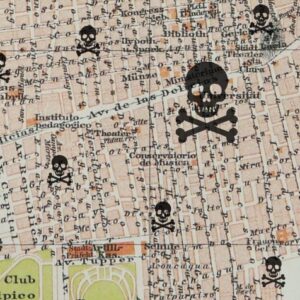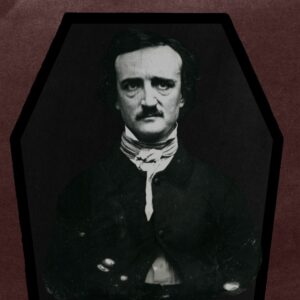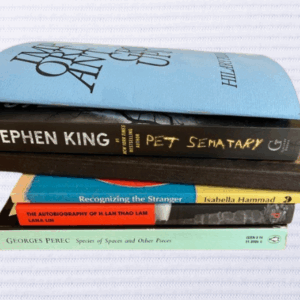In the artificial light of the present, his life with Karla appears to him like a cloud, like a lake. He thinks of it as a way station, a country seen from the window of a slow-moving train. The night of the message on the wall, Julián kept picturing a scene that he thought was inevitable, but that never actually took place: he foresaw himself sitting across from Karla over an obligatory cup of coffee—she would build sudden and dramatic pauses and then utter devastating words, rehearsed at length and yet completely honest. Later, back in his new life, Julián would hit upon the answers he’d been trying dolefully to stammer out.
But the moment for appeasing Karla’s fury or indifference never came. More than once he almost instigated that final scene, but the force that drove him was apparently very weak: the mere idea of getting wrapped up in an argument provoked a profound apathy in him. Julián didn’t want to recover their love; he had stopped loving her a long time ago. He had stopped loving her a second before he started loving her. It sounds strange, but that’s how he feels: instead of loving Karla, he had loved the possibility of love, and then love’s imminence. He had loved the idea of a mass moving under dirty white sheets.
I’m alone, Karla would say when anyone asked about her family. I don’t have parents, I don’t have a family, I’m alone. And it was true: Karla’s father had died recently, and her mother had been dead for many years, ever since she abandoned her husband and daughter and took off for Cali, chasing a vague and esoteric dream. Karla’s advantage was that she didn’t have a family; Julián’s disadvantage was that he had not only a father and a mother and a sister, but also a messy bunch of grandparents, aunts and uncles, cousins, and even a couple nephews. Karla offered him a perfect place to insulate himself from the past. There was nothing in Julián’s past from which to flee, but that was exactly what he was escaping: mediocrity, untold hours wasted in nobody’s company.
Karla was studying philosophy at the University of Chile, but she didn’t aspire to get a degree or a job or any such thing. Her only desire was to stay home listening to music and smoking weed. She ate, almost exclusively, chocolate bars or pasta with Parmesan cheese, although when Julián, who was a good cook, moved in, the menu broadened to include pasta with pesto, ravioli, fried chicken, and even some traditional porotos granados. He taught his classes, and the money from Karla’s inheritance afforded them certain luxuries: he bought books, and she bought CDs, pot, and benzos, which were really more of an obligation than a vice.
Focused as he was on his classes and the fixed idea of his book, Julián overlooked certain crucial moments in Karla’s life: he didn’t notice her eagerness every night as she waited by the phone for calls that lasted a long time, or else just a few minutes. He didn’t ask, Who called, what did they want, where are you going? Or he did ask, but he didn’t insist; he accepted, in advance, the evasions and slammed doors.
He never found out exactly why Karla suddenly went AWOL. At first she yawned rudimentary explanations: I was late because I met a sick woman who needed my help, she told him one morning, but he barely acknowledged her—he didn’t see, or didn’t want to see, a dry and urgent shine in Karla’s dun-colored eyes. Later she started to stay over at the woman’s house, with the excuse that she was taking care of her. There was no need for further explanations. Every two or three days Julián found half-opened boxes, unwashed plates, and other signs of Karla’s presence. Weeks passed before they saw each other again, by chance, on the landing of the staircase. Then there was an awkward greeting, with no kiss, and a kind of conversation: My friend is better, she said, thanks to me. When are you coming back? asked Julián, disconcerted, but there was no response. He should have pressured her, forced her, maybe, to confess what he belatedly began to suspect: that the woman was Karla’s mother.
Julián observed Karla’s absences from afar, with indifference and even relief. Some days he imagined her walking down Irarrázaval, her Discman playing Tindersticks songs on repeat, as she thought about her mother, about the woman Julián believed was her mother. Perhaps she was pretending she had a mother, perhaps she had convinced the woman that she could be her mother, maybe she had asked, begged the woman to be her mother, thought Julián, already bored with trying to decipher a plot that didn’t really interest him much anyway.
He never got very far in his conjectures about Karla—he had other things to think about. Sometimes dawn caught him juggling convoluted endings for his novel, which was clearly not a novel but rather a book of fragments or annotations. He didn’t want to write a novel, not really; he merely wanted to find a nebulous yet coherent place where his memories could pile up. He wanted to put his whole memory in a bag and then drag that bag around with him until its weight destroyed his back.
At the end of one cold night of writing, Julián decided to stop filling pages with diffuse and indecipherable fictions; instead, he would write a diary of the bonsai, a painstaking record of the tree’s growth. It seemed simple. Every evening when he got home, he would note every change, no matter how tiny, that the tree may have undergone while he was out: the appearance of a leaf, a shy curving of the trunk, six minuscule pebbles he could swear hadn’t been there the day before. Almost automatically, life would begin to push its way into the hard, objective facts he was amassing.
He went to bed happy, satisfied, with all of life ahead of him. But he hadn’t even closed his eyes when he heard a key turn in the lock. It was Karla and the sick woman, returning, perhaps, from a furtive walk in the park.
*
Julián went to the living room and greeted the two women, scanning their surprised faces for some family resemblance, but he found only the slight similarity that can exist between sisters or cousins or even friends. That in itself was odd, though, since Karla didn’t have, or claimed not to have, any sisters or cousins or friends. What really shook him, however, was that the woman did not seem sick. Comparing her calm, cheerful expression to Karla’s grim visage gave the impression that Karla was the sick one and her mother, her possible mother, the nurse.
The woman responded to Julián’s greeting with a mixture of warmth and restraint, while Karla simply made it clear that she wanted to be alone with her guest. That’s what she called her, my guest. He thought he could linger over the niceties, and that it was perfectly legitimate to ask, based on common sense, whether they were cousins or friends or mother and daughter. Predictably, Karla lost her patience and told him, Go to bed, we want to be alone, I’m sure you can understand that we just want to be alone.
Julián tried his damnedest to eavesdrop, from his room, on the women’s conversation, but they hardly said anything at all. They sat there in silence, and that silence grew for nearly an hour until it was intolerable. The women left the house together, and Karla didn’t come back that night or any other night for several months. And when she did return it was only to write on the living room wall, in red paint or perhaps in blood: Get out of my house, motherfucker.
He hardly ever thinks about Karla now. A few days ago, when Daniela’s cat died, Julián remembered a poem by Wisława Szymborska and went to get the book from his shelves, thinking he could read it to her as consolation. After searching for a while, he realized that the green Hyperion edition was yet another book he had left at Karla’s house. His memories of Karla were almost exclusively tied to the memories of books he hadn’t packed that night of the message on the wall. Now Karla is nothing but a book thief to him. That’s what he calls her sometimes, between clenched teeth, while scanning the shelves in vain: that book thief.
He imagines Karla drinking tea with her possible mother or nurse, discussing ways to get money to pay for a dental procedure, or to take a trip to London or Paris or Lisbon. It seems terrible to have lived all those years with Karla. Terrible and devastating.
Now Julián has a real family, the kind that spends Saturday afternoons doing science homework or watching Tim Burton movies. Daniela has just fallen asleep; he senses his wife’s imminent arrival and strains his ears, but all he hears is the faint, hoarse bubbling of the aquarium they set up in the living room a few months ago. Stealthily, Julián approaches Cosmo and Wanda, who continue their perpetual voyage through the dirty water, and he observes them with disproportionate attention, his face to the glass. Suddenly, theatrically, Julián takes on the attitude of a warden, a fish warden, a man specially trained to keep fish from escaping aquariums.
__________________________________
From THE PRIVATE LIVES OF TREES by Alejandro Zambra, published by Penguin Books, an imprint of Penguin Publishing Group, a division of Penguin Random House, LLC. Copyright© 2007 by Alejandro Zambra. Translator Copyright© 2010, 2023 by Megan McDowell.













